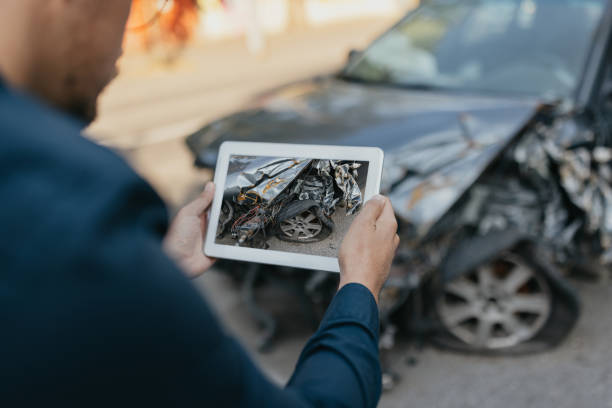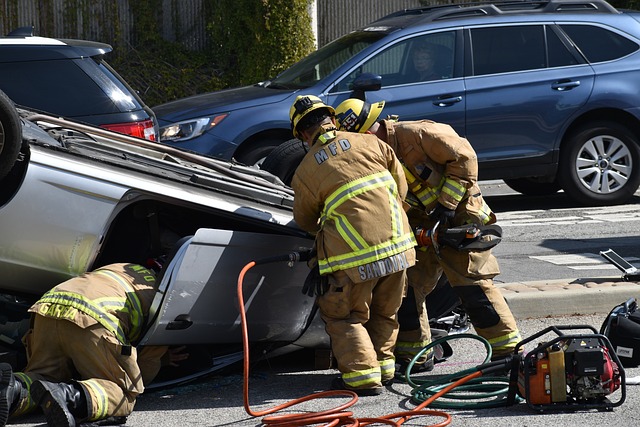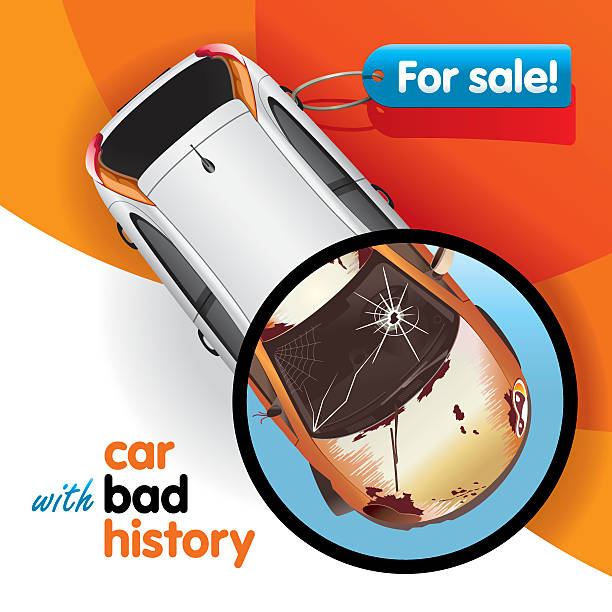Buying a used car is often one of the biggest financial decisions you’ll make. Among the many considerations, one of the most significant is whether to buy a car with a history of accidents. While it might seem tempting to save money on a car with a lower price tag due to its accident history, this decision requires careful thought and thorough investigation. Understanding how a car accident history affects the car’s value, safety, and overall reliability is crucial to making an informed choice.
In this guide, we’ll explore the potential benefits and risks of buying a vehicle with an accident history, how to properly assess these vehicles, and tips for ensuring you’re not making a costly mistake. Whether you’re looking for used car buying tips or want to understand how a pre-purchase inspection can save you from future headaches, we’ve got you covered.
Understanding the Impact of Car Accident History on a Vehicle
Every time a car is involved in an accident, the risk of unseen damage increases. Even minor incidents can cause long-term issues that may not be immediately apparent. So, should you buy a car with a history of repairs? To answer that, you must first understand how accidents affect vehicles.
Types of Vehicle Damage from Accidents
The vehicle damage types from accidents range from cosmetic to structural, with some being more severe than others:
- Cosmetic Damage: Dents, scratches, or broken body panels that affect the car’s appearance but don’t typically impact performance.
- Frame Damage: More serious, often resulting in a weakened structure, which can compromise safety, handling, and alignment.
- Airbag Deployment and Safety System Damage: Accidents can damage airbags, seatbelts, or other critical safety features, affecting your car’s safety performance.
- Engine and Transmission Damage: In severe accidents, the engine and transmission can be harmed, which might result in costly repairs.
Long-Term Effects of Car Accidents
While minor accidents might not seem alarming, their effects can linger. Post-accident repairs might not always restore the vehicle to its original state. Even small accidents can result in frame damage in cars or misaligned components that degrade over time, impacting vehicle maintenance and causing future car depreciation.
Weighing the Pros and Cons of Buying a Car with an Accident History

When considering whether to buy an accident-damaged vehicle, it’s essential to weigh the advantages and disadvantages.
Pros of Buying a Car with an Accident History
- Lower Purchase Price: Cars with accident histories often come with lower asking prices, which can be an attractive option if you’re on a budget.
- Potential for Minor Damage: If the damage was minimal and well-repaired, the car could still offer many years of reliable service at a discounted price.
Cons of Buying a Car with an Accident History
- Hidden Damage: Even a well-repaired car might hide underlying issues, such as frame damage or poor-quality repairs.
- Increased Risk of Future Repairs: Cars that have been in accidents are more likely to need future repairs, which can become expensive.
- Impact on Resale Value: If you buy a car with an accident history, it will likely lose value faster than a car without such a history, making it harder to sell later on.
- Higher Insurance Costs: Insurance for accident-damaged cars tends to be more expensive, and some insurers may be reluctant to offer coverage on cars with serious past damage.
How to Evaluate a Damaged Car Before You Buy
1. Get a Vehicle History Report
A CARFAX report or vehicle history report is one of the first things you should request when considering a used car. This report provides vital information about any accident reports and details such as salvage title vehicles, previous owners, mileage, and any major repairs. A car accident report verification can reveal important facts about the vehicle’s history, including whether the damage was reported.
2. Vehicle Damage Inspection
It’s crucial to inspect the vehicle for any signs of poor-quality vehicle damage repair. Look for mismatched paint, signs of frame damage, or panels that don’t fit correctly. If the car was involved in a major accident, some vehicle repair quality may be subpar.
3. Pre-Purchase Inspection by a Mechanic
A pre-purchase inspection is a must when buying any used car, especially one with a history of accidents. A vehicle inspection by a mechanic can help identify hidden damage that a test drive might not uncover. This inspection will assess the car’s frame, suspension, and other critical components that are often affected by accidents.
Test Drive: What to Look for
Taking a car for a test drive is an essential part of the car evaluation process. While it might not uncover every issue, it can help you detect several red flags:
- Unusual Sounds: Listen for any grinding, clunking, or squeaking sounds that could indicate problems with the suspension, steering, or brakes.
- Alignment Issues: Pay attention to whether the car pulls to one side. Misalignment is often a sign of frame damage in cars.
- Handling Problems: If the car doesn’t feel smooth or responsive on the road, it could be a sign of post-accident repairs that didn’t fully restore its driving characteristics.
The Role of Insurance in Buying a Car with an Accident History
Before you make a decision, it’s important to understand how buying a car with an accident history can affect your auto insurance for used cars. Insurance for cars with a history of accidents can be more expensive, and you may face difficulties finding comprehensive coverage, especially for vehicles with salvage titles.
Key Points:
- Higher Insurance Premiums: A car with an accident history may lead to higher premiums, especially if the damage was significant.
- Salvage Vehicles and Insurance: Many insurance companies won’t provide full coverage for salvage vehicles, and you may only be able to get liability insurance.
- Insurance Quotes for Used Cars: Be sure to get an insurance quote for used cars before purchasing, especially if the car has a history of serious accidents.
Should You Buy a Car with an Accident History?

Ultimately, the decision to buy a car with an accident history depends on several factors:
- Price vs. Condition: If the car is priced significantly lower than similar models without an accident history, but the damage is superficial and well-repaired, it may be worth considering.
- Repair Quality: If the vehicle repair quality is questionable or if the car has frame damage, you should be cautious, as these issues can have serious consequences down the road.
- Resale Value: Keep in mind that a car with an accident history will depreciate faster. If you plan to resell it in the future, expect a lower return.
Where to Buy Reliable Used Cars in Canada
When it comes to buying a used car in Canada, whether from a private seller vs. dealer cars, it’s important to choose a trustworthy source. Buying from trustworthy car dealerships can give you more peace of mind, as they often offer certified used cars with warranties. Additionally, reputable dealers typically offer vehicle inspection tips, provide access to detailed car repair history, and are more transparent about vehicle damage disclosure.
Trusted Sources for Buying Used Cars:
- Certified Pre-Owned Programs: These are cars that have been thoroughly inspected and come with a warranty.
- Licensed Dealerships: Look for a dealer with a good reputation, who is willing to disclose the vehicle damage history.
- Private Sellers: When buying from a private seller, it’s even more important to conduct a thorough vehicle inspection.
Conclusion
Deciding whether to buy a car with a history of accidents requires careful consideration. The car accident impact can vary widely based on the extent of the damage, the quality of repairs, and how well the car has been maintained since the accident. By conducting thorough research, including obtaining a vehicle history report, pre-purchase inspection, and test drive advice, you can make a well-informed decision.
While buying a vehicle with an accident history can offer savings up front, it can also come with hidden risks. Ensure you assess the vehicle repair quality, understand the potential car depreciation after accidents, and consider the long-term costs, including auto insurance for used cars.
By following the used car buying tips outlined here, you can minimize your risks and make a purchase that fits your needs and budget.
Also Read More Article : Are Electric Cars Using Flammable Refrigerants?
